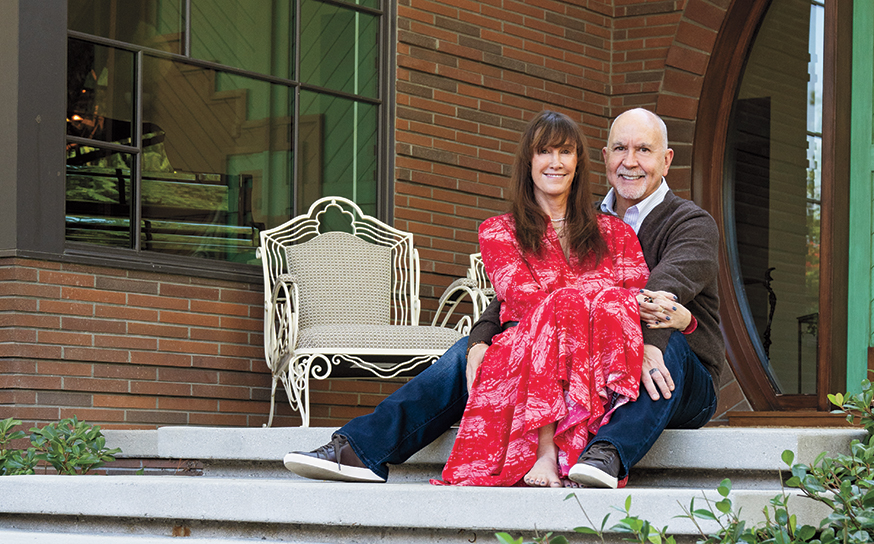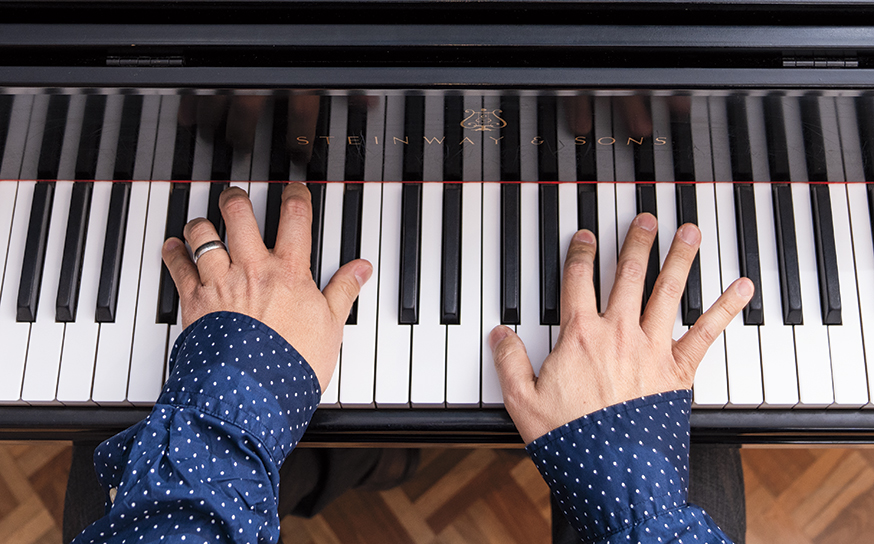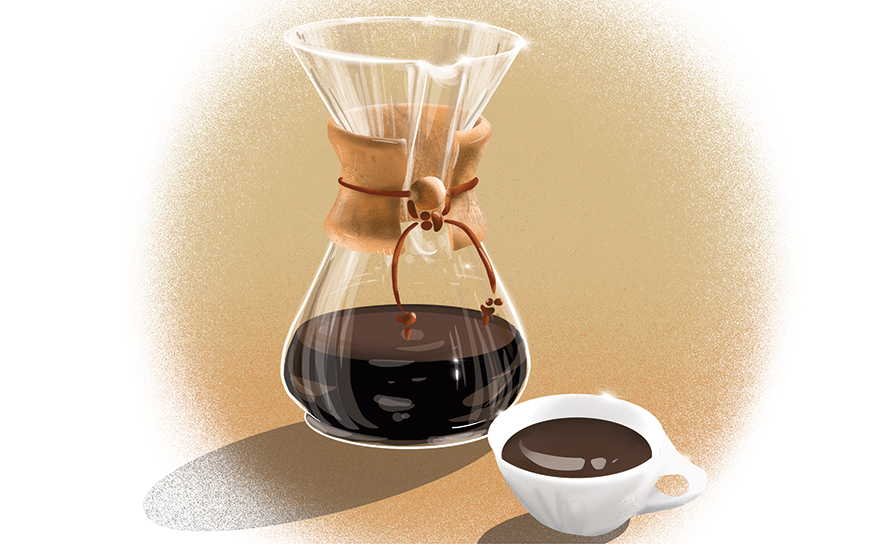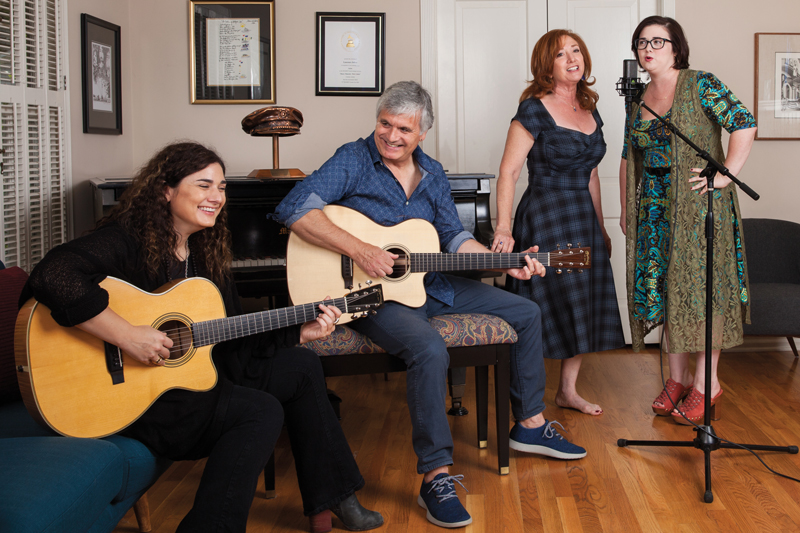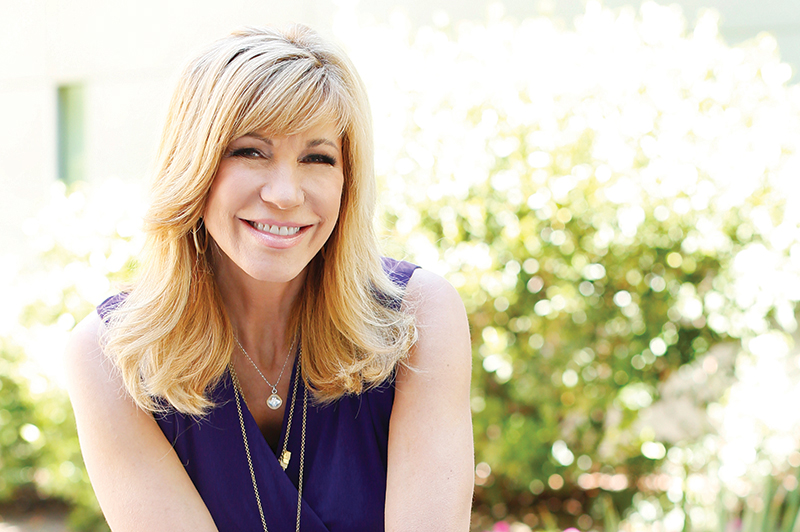
Her Biggest Story
Leeza Gibbons talks about her Valley-based nonprofit, what she did with her cash prize from The Apprentice and her views on Trump mid-stump.
-
CategoryPeople
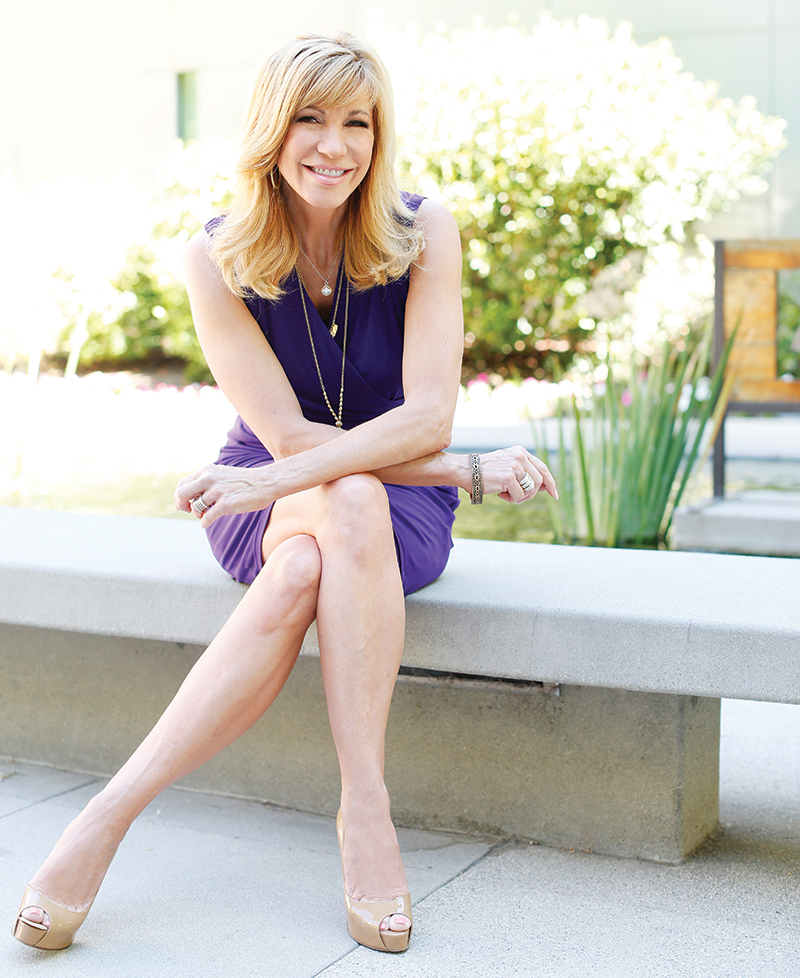
When Leeza Gibbons’ mom was diagnosed with Alzheimer’s disease, “the music to my life stopped.” The TV personality, who first gained fame on Entertainment Tonight, has devoted her life to preventing that from happening to others. She established Leeza’s Care Connection to provide comprehensive, free services for people caring for a loved one with the disease. The nonprofit operates out of Providence St. Joseph’s Medical Center in Burbank.
In a candid one-on-one with editor-in-chief Linda Grasso, Leeza talks about her main mission and how she proved this past year that nice girls can finish first.
 First I’d like to know a bit about your mom and her journey.
First I’d like to know a bit about your mom and her journey.
My mom was the coolest. She was my best traveling companion during my years at ET. We noticed her behavior change in her late 50s. We thought she may have just been drinking too much. We know now that she was probably self-medicating with wine (a fairly common occurrence). Her mother had the disease so I guess we should have suspected but we just didn’t want to face the reality that we were losing her. She was officially diagnosed at 63.
At one point, you vowed to your mother to do something for people suffering from AD.
She said, “Honey you’ve been a reporter for decades. Now this is your story. Don’t hide it. Tell it and make it count.” Leeza’s Care Connection is the answer to that promise.
Share a bit about how your organization helps caregivers.
We help them navigate this difficult path and begin to answer the question: “Now what?” It doesn’t matter how much education or money you have; this cold reality affects everyone pretty much the same. We help caregivers keep moving forward with a focus on what’s left instead of what’s lost. It’s imperative that those who offer care take their oxygen first. Our aim is to empower family members to feel more competent and confident about what they have to do.
As I know from my family’s own experience with AD, there is also a lot of guilt.
Guilt is a caregiver’s constant companion. I used to feel guilty when I felt happy, guilty that I couldn’t make it better, guilty that I couldn’t move back home. Especially in the end, I wished for it to all be over for mom.
Compassion Fatigue is a real condition that can take up to 10 years off the lives of caregivers. That’s why we have created a safe, supportive place where you can use tools like Zumba classes to Empowerment Support Groups to help caregivers.
Share more about how you help caregivers at LCC.
We meet caregivers wherever they are in the journey. Maybe they just want advice on what to do next, how to get along with family members or a list of other free services offered by the city or state. Or perhaps they need to be nourished through our classes and lectures. Better care for the caregiver translates to better care for the care receiver.
It seems like there is an increasing awareness about AD.
Yes! People are beginning to understand that this is more than “just forgetting” people’s names and where you put your car keys.
Still Alice and the Glen Campbell film helped. Now we need to turn up the heat on federal funding, which is shamefully behind the budgets for other diseases. It is bankrupting families; the cost of caring for an Alzheiemer’s patient is extremely high.
You won The Apprentice last season. What was that experience like for you?
Tough, challenging but also great fun and meaningful. They say it was “the meanest season ever.” I didn’t see it that way. I don’t mess with mean, and I can usually drop the drama and cut the crazy too. (As a fan of the show, though, I do often find those aspects of the program compelling!) But this was my year to stand for those who face a disease with courage and grace, like my mom, and those who show up to care for them, like my dad. That was my prize—telling THAT story.
How much money did you win for LCC?
Over $700,000! I took that money back home to where I grew up in Columbia, South Carolina, and opened a Leeza’s Care Connection in the neighborhood.
Finally, in reflecting on your experiences with Trump—what are you thinking as you watch him campaigning?
Whether his politics are your cup of tea or not, he has changed the game and the conversation. There is nothing about him or his life that trends toward “playing small,” and I think that kind of boldness is inspiring people. People in both parties are taking this journey and asking new and different kinds of questions. Like him as a candidate or not, you have to like that.





